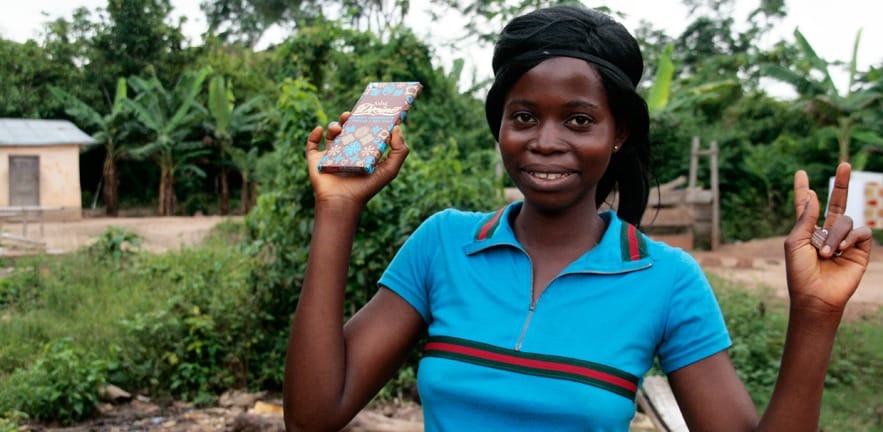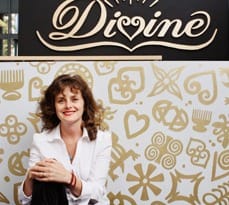Sophi Tranchell’s leadership of Divine Chocolate is a sweet victory for integrity, inspiration and belief.

Always be plausible and believe in what you are doing. I am a third generation social campaigner but I make money as well. My parents and my grandparents all campaigned at a political level and I grew up knocking on doors for the Labour party in London. But I also saw the need to make matters stack up financially so I honed my fundraising skills. I sold Irish coffee at Labour party fayres and ran a benefits concert for the anti-apartheid campaign – as a sixth-former I even sold my schoolmates buttered toast.

I have never wanted to feel powerless. I remember growing up watching the endless killings in Northern Ireland and Israel on TV and knowing there was absolutely nothing I could do about them. As a teenager I went to a debate with Arthur Scargill and Clare Short on the suitability of pin-up girls in a miners’ magazine. Of course, I was on Short’s side, but I admired the way Scargill stood up for his people. I realised the corporate world was in many ways becoming more important than government and I could influence the way the corporate world worked. I left behind a career in the film business for chocolate because Divine was an irresistible proposition: a great name and product with a compelling business argument supporting Ghana’s cocoa growers. It has been working closely with farmers and getting to know them personally that has consistently inspired and motivated me to make Divine a success.
I like to engage people on a human level. I am glad I didn’t know much about the retail market when I started out. I was able to question everything and I didn’t understand why we should pay to get our products stocked. There is a better way to do business, in a way that is respectful to the primary producers. In addition to great products with good margins, I talked about our cocoa farmers and handed out an educational pack. The buyers were astonished; after all, life can be a slog, a job can be boring, so someone who talks about something interesting can make it work. People respond to something different.
Sometimes it’s good to say no. As a leader you don’t have to take every opportunity – you can be discerning. It’s very important to me that the people we work with share our ethos. So we turned down some sources of finance, like the venture capitalists, because they wanted a quick in and out, and we didn’t work with those supermarkets that wanted our price list before they even met us. That’s not what we are about. But if we did want to be somewhere I just kept on coming back until they said yes. That’s what happened at Starbucks for example. And if you are working with people who believe in what they and you are doing, such as Christian Aid and The Body Shop who were both very helpful to us at the beginning, then it’s easier to all pull together when things get difficult.
I am not optimistic about young people today. When I was growing up we really wanted to make a difference, to see social justice, but I am not sure that today’s generation believe that’s possible. They are bombarded with a scale and speed of information that is overwhelming them into a state of apathy – they may want to but they don’t seem to think that they can make a difference. When talking to young graduates I find many of them can’t seem to imagine anything other than profit maximisation as a business model. I want to see them questioning who owns what, considering other business models and making equality of outcome fundamental to the way we do business rather than a side consideration. Unless such beliefs are core then we will not be able to solve the big problems we are facing such as world food security and mass migration. It’s not enough just to jump on the corporate social responsibility bandwagon.
It’s an over-used phrase, but I really do feel that I have it all. With the help of my husband, a piano teacher, I was able to be a very hands-on parent to my two children while building a successful career in something I truly believe in. My younger self would have been delighted with what I am doing now as well as feeling that, as the CEO of an international company, I am better rewarded financially than I might have expected.
What’s most important to me is to inspire others, to show them that a different, better way is possible. If you can imagine it, then you can do it, that’s what I told my children. Now the challenge at Divine is to become financially resilient enough – which means big enough – to make sure we go on supporting all those who rely on us for their livelihood. I have never taken anything as a given and I am going to carry on leading from the front so that we as a company can deal with whatever life throws at us. That goes for my personal life too.

